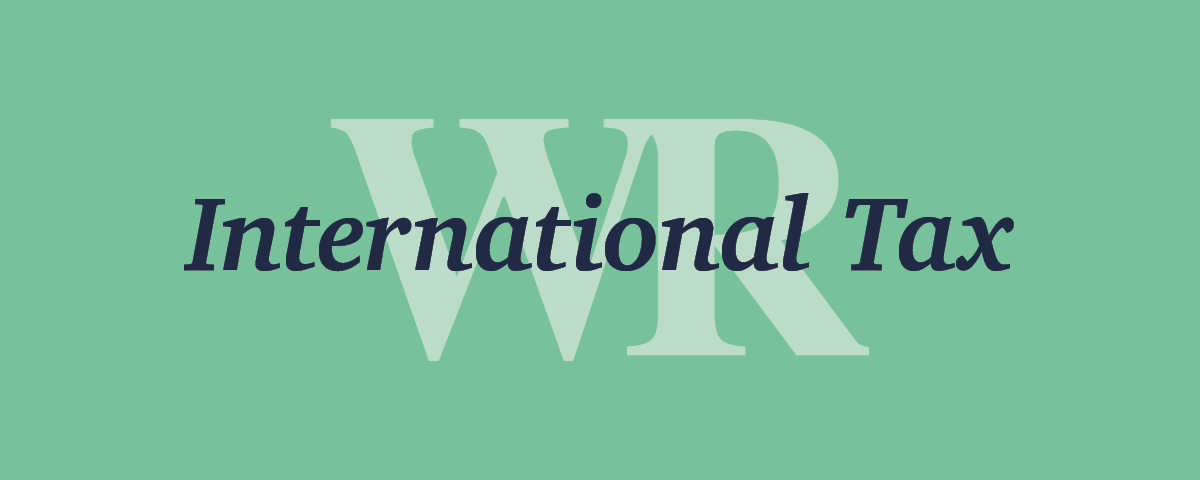
Thriving Through Seasons: The Tourism Focus of Hospitality
January 15, 2025
Celebrating Back-to-Back Best of Accounting Awards
February 12, 2025Key Policy Shifts Affecting U.S. Businesses

What to Watch For in 2025
Policies that may significantly impact business operations, regulatory compliance and global competitiveness are changing quickly. The new Trump administration has already introduced substantial shifts across taxation, trade, regulatory oversight and economic priorities. Understanding these changes will help you mitigate risks and capitalize on opportunities.
Here’s a look at some of the recent Key Policy Shifts Affecting U.S. Businesses developments and their implications.
OECD Global Tax Deal
It has been declared that the U.S. will no longer recognize commitments made under the OECD Global Tax Deal citing concerns about national sovereignty and economic competitiveness. This deal was initially designed to establish a global minimum tax and prevent profit shifting by multinational corporations.
Key Developments:
- Policy Shift – The administration’s stance is that compliance with the OECD framework could restrict the U.S.’s ability to implement tax policies tailored to its national interests.
- Economic Sovereignty – The administration argues that foreign tax policies unfairly target American companies and limit their global competitiveness.
- Protective Measures – A review of foreign tax compliance and potential countermeasures against discriminatory tax practices will be conducted.
Implications for Businesses:
- Increased Uncertainty – Multinational corporations and importers may face heightened complexity in international tax compliance, requiring a reassessment of global tax strategies.
- Potential Retaliation – Foreign jurisdictions may impose retaliatory tax regimes, affecting U.S. businesses operating abroad.
- Strategic Planning – Companies should engage in proactive tax planning to navigate an increasingly fragmented global tax landscape.
America First Trade Policy
The administration has reaffirmed a commitment to an “America First” trade agenda, aiming to reduce trade deficits and protect domestic industries. The approach prioritizes national security, supply chain resilience and industrial self-sufficiency.
Key Developments:
- Trade Deficit Reduction – Investigations into persistent trade deficits and recommendations for corrective actions, including global supplemental tariffs.
- USMCA Review – A comprehensive assessment of the United States-Mexico-Canada Agreement to ensure it serves U.S. economic interests.
- Currency Manipulation – Identification of trading partners that may be engaging in unfair currency practices, with potential countermeasures.
- Reassess Trade Relationship with China – Review trade agreement and offer more protective recommendations.
- Review Discriminatory Country Tax Practices – Take a look at country practices and offer recommendations of raising U.S. taxes on these country companies and residents.
Implications for Businesses:
- Tariff Uncertainty – Companies reliant on imports should prepare for potential tariff increases that could raise costs and disrupt supply chains.
- Export Opportunities – Businesses focusing on domestic production may find increased support and incentives to expand operations.
- Regulatory Scrutiny – Heightened enforcement of trade agreements could impact compliance obligations.
- Review Tax and Customs Footprints – In light of these possible changes, it is prudent to review and reassess customs tax impact and arrive at possible alternative approaches.
- Regulatory Freeze Pending Review – The administration has implemented a regulatory freeze, pausing pending rules and requiring comprehensive reviews by newly appointed agency heads before moving forward.
Key Developments:
- Temporary Rule Suspension – New regulations cannot be issued or finalized without a thorough review.
- Extended Review Period – Agencies have been given a 60-day window to consider final regulations as to their effective dates and continued operation pending rules for potential modifications or withdrawals.
- Agency Oversight – Greater involvement from the Office of Management and Budget to ensure alignment with broader economic goals.
Implications for Businesses:
- Compliance Relief – A pause in new regulatory burdens allows businesses time to adjust and prepare.
- Potential Rollbacks – Existing regulations may be rescinded or revised, particularly those perceived as overly restrictive.
- Opportunity for Input – Businesses should actively engage in comment periods to influence future regulatory developments.
Economic Realignment and Policy Overhauls
The administration has set forth an ambitious agenda aimed at restoring economic growth, national security and energy independence. Major policy initiatives include border security enhancements, deregulation and infrastructure investments.
Key Developments:
- Border Security – Stricter immigration policies and increased enforcement to address labor market challenges.
- Energy Policy Overhaul – Scaling back environmental regulations to boost domestic energy production.
- Government Reform – Efforts to reduce bureaucracy and streamline federal operations.
Implications for Businesses:
- Labor Market Shifts – Changes in immigration policies may affect workforce availability in key sectors.
- Energy Costs – Businesses may benefit from lower energy costs but should anticipate regulatory push back in certain states.
- Contracting Opportunities – Infrastructure investments could create new business opportunities in construction and manufacturing.
Trade Relations with China
The administration has signaled a more aggressive stance towards China, focusing on trade imbalances, intellectual property protections and supply chain security.
Key Developments:
- Tariff Reviews – Potential tariff increases on Chinese imports to counteract unfair trade practices.
- Intellectual Property Protection – Stricter enforcement to safeguard U.S. technological advancements.
- Supply Chain Resilience – Policies aimed at reducing dependence on Chinese manufacturing.
Implications for Businesses:
- Higher Costs – Importers of Chinese goods should prepare for increased tariffs and potential disruptions.
- Reshoring Opportunities – Companies may explore relocating supply chains to domestic or allied markets.
- Market Uncertainty – Businesses with operations in China should stay vigilant for policy changes and geopolitical risks.
It’s Time to Focus on Strategy
The policy shifts introduced by the administration present both challenges and opportunities for U.S. businesses. Companies must adopt a proactive approach, staying informed and agile to navigate the evolving regulatory and economic environment.
Businesses should regularly monitor policy changes and assess their potential impact. Engaging with tax, trade and regulatory professionals will help develop strategic responses. Additionally, participating in public comment periods and industry advocacy efforts can influence policy outcomes.
By understanding these key policy shifts, business leaders can position their organizations for success even as things become more complex.


